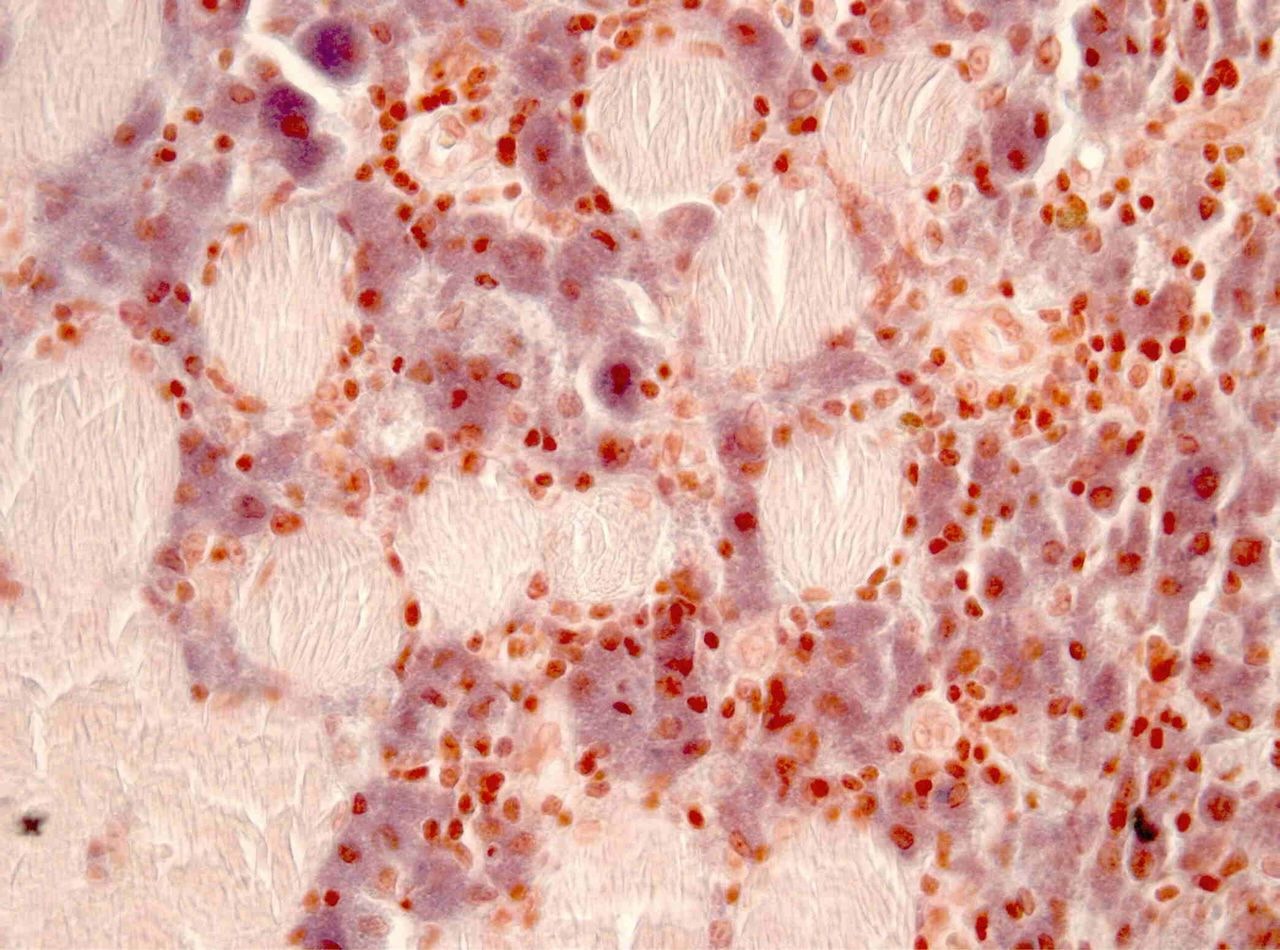
What is Macrophagic Myofasciitis (MMF)? Macrophagic Myofasciitis (MMF) is a rare muscle disease characterized by muscle pain, fatigue, and cognitive issues. MMF often appears after receiving vaccines containing aluminum-based adjuvants, which are substances added to vaccines to boost the body's immune response. Symptoms can include chronic muscle pain, joint pain, and severe fatigue, making daily activities challenging. Diagnosis typically involves a muscle biopsy, where doctors look for specific markers in muscle tissue. Treatment focuses on managing symptoms through pain relief, physical therapy, and sometimes medications to reduce inflammation. Understanding MMF can help those affected find better ways to cope and seek appropriate medical care.
Key Takeaways:
- Macrophagic Myofasciitis is a rare condition linked to aluminum-containing vaccines, causing muscle pain, fatigue, and cognitive issues. Diagnosis involves muscle biopsies, and treatment focuses on reducing inflammation and managing symptoms.
- Living with MMF can be challenging, but support groups, healthy lifestyle choices, stress management, regular medical check-ups, and education can help improve quality of life and advocate for better treatments.
What is Macrophagic Myofasciitis?
Macrophagic Myofasciitis (MMF) is a rare condition that affects muscle tissue. It was first identified in the late 1990s and has since been a subject of medical research. Here are some intriguing facts about MMF.
-
MMF was first described in 1998: French researchers identified the condition while investigating patients with muscle pain and fatigue.
-
Aluminum adjuvants are linked to MMF: The condition is associated with aluminum-containing vaccines, which are used to boost immune response.
-
Muscle biopsies reveal the condition: Diagnosis often involves a muscle biopsy showing macrophages with aluminum deposits.
-
Symptoms can be diverse: Patients may experience muscle pain, chronic fatigue, and cognitive issues.
-
It's considered an inflammatory condition: MMF involves inflammation of the muscle tissue, particularly where vaccines were administered.
Symptoms and Diagnosis of MMF
Understanding the symptoms and how MMF is diagnosed can help in recognizing this rare condition. Here are some key points.
-
Muscle pain is a common symptom: Many patients report persistent muscle pain, often in the deltoid muscle.
-
Chronic fatigue is prevalent: Fatigue that doesn't improve with rest is another hallmark of MMF.
-
Cognitive issues may arise: Some patients experience memory problems and difficulty concentrating.
-
Muscle biopsies are crucial: A definitive diagnosis usually requires a biopsy showing characteristic macrophages.
-
Blood tests are not definitive: While blood tests can rule out other conditions, they don't confirm MMF.
Causes and Risk Factors of MMF
The exact causes of MMF are still being studied, but several factors are known to contribute to its development.
-
Aluminum adjuvants in vaccines: These are the primary known cause, used to enhance the immune response.
-
Genetic predisposition: Some individuals may be genetically predisposed to react to aluminum adjuvants.
-
Multiple vaccinations: Receiving several aluminum-containing vaccines may increase the risk.
-
Immune system response: An overactive immune response to vaccines can lead to MMF.
-
Environmental factors: Other environmental exposures to aluminum may also play a role.
Treatment and Management of MMF
Managing MMF involves addressing symptoms and reducing inflammation. Here are some treatment strategies.
-
Anti-inflammatory medications: These can help reduce muscle inflammation and pain.
-
Physical therapy: Exercise and physical therapy may improve muscle function and reduce pain.
-
Immune-modulating drugs: Medications that modulate the immune system can be beneficial.
-
Avoiding further aluminum exposure: Patients are often advised to avoid additional aluminum-containing vaccines.
-
Supportive care: Managing fatigue and cognitive symptoms through lifestyle changes and supportive therapies.
Research and Future Directions
Ongoing research aims to better understand MMF and develop more effective treatments. Here are some areas of focus.
-
Understanding the immune response: Researchers are studying how the immune system reacts to aluminum adjuvants.
-
Developing alternative adjuvants: Efforts are underway to find safer vaccine adjuvants that don't trigger MMF.
-
Genetic studies: Identifying genetic factors that increase susceptibility to MMF.
-
Long-term studies: Researching the long-term effects of MMF and its treatments.
-
Patient registries: Creating registries to track MMF cases and improve understanding of the condition.
Living with MMF
Living with MMF can be challenging, but there are ways to manage the condition and improve quality of life.
-
Support groups: Joining support groups can provide emotional support and practical advice.
-
Healthy lifestyle: Maintaining a healthy diet and regular exercise can help manage symptoms.
-
Stress management: Techniques like meditation and yoga can reduce stress and improve well-being.
-
Regular medical follow-ups: Keeping regular appointments with healthcare providers to monitor the condition.
-
Education and awareness: Educating oneself and others about MMF can help in managing the condition and advocating for better treatments.
Final Thoughts on Macrophagic Myofasciitis
Macrophagic Myofasciitis (MMF) remains a complex and often misunderstood condition. It's crucial to stay informed about its symptoms, causes, and treatments. MMF primarily affects those with a history of vaccinations containing aluminum adjuvants, leading to muscle pain, fatigue, and cognitive issues. Early diagnosis and tailored treatments can significantly improve quality of life.
Staying updated with the latest research helps in understanding MMF better. Support groups and medical professionals specializing in MMF can provide valuable assistance. If you or someone you know shows symptoms, seeking medical advice promptly is essential.
Knowledge empowers patients and caregivers alike, fostering a supportive community. By spreading awareness and staying informed, we can better navigate the challenges posed by MMF. Remember, you're not alone in this journey; resources and support are available.
Frequently Asked Questions
Was this page helpful?
Our commitment to delivering trustworthy and engaging content is at the heart of what we do. Each fact on our site is contributed by real users like you, bringing a wealth of diverse insights and information. To ensure the highest standards of accuracy and reliability, our dedicated editors meticulously review each submission. This process guarantees that the facts we share are not only fascinating but also credible. Trust in our commitment to quality and authenticity as you explore and learn with us.
